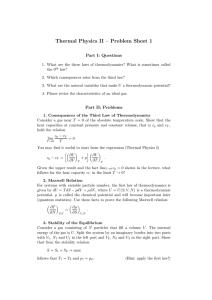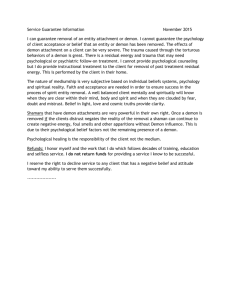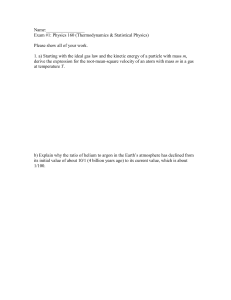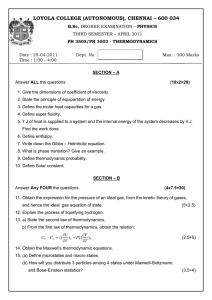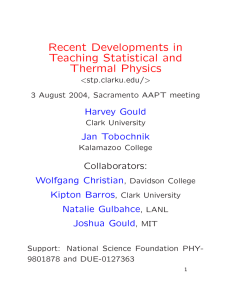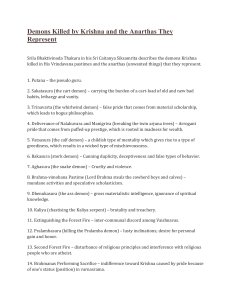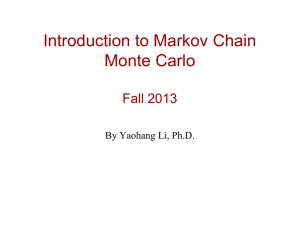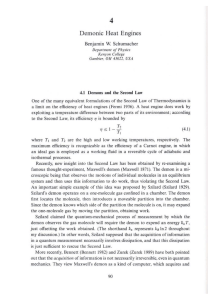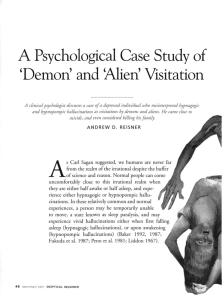A Phase-Volume Based Exorcism of Maxwell’s Demon John D. Norton
advertisement
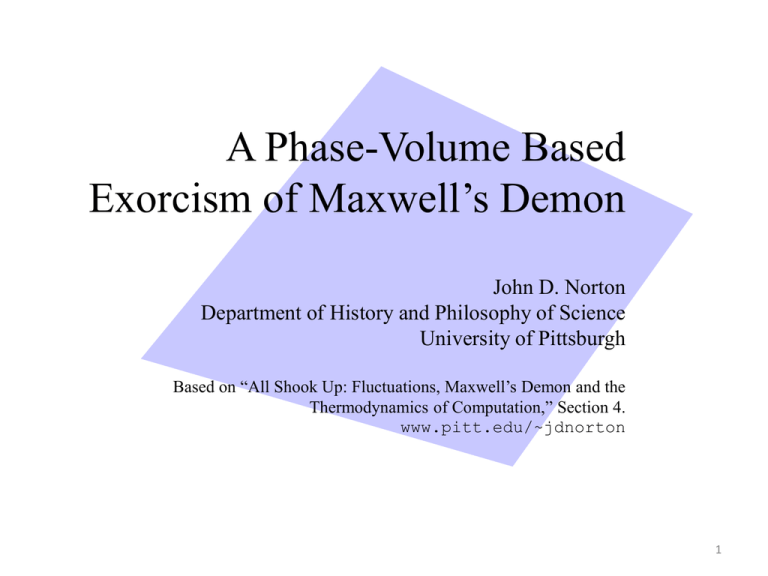
A Phase-Volume Based Exorcism of Maxwell’s Demon John D. Norton Department of History and Philosophy of Science University of Pittsburgh Based on “All Shook Up: Fluctuations, Maxwell’s Demon and the Thermodynamics of Computation,” Section 4. www.pitt.edu/~jdnorton 1 Any Closed Thermodynamic System 2 Its Phase Space total phase volume V equilibrium states small fraction a intermediate states of total volume 3 Assumption (a) (a)A Maxwell’s demon is a device that, when coupled with a thermal system in its final equilibrium state, will, over time, assuredly or very likely lead the system to evolve to one of the intermediate states; Succeeds with all but small fraction b of equilibrium systems. and, when its operation is complete, the thermal system remains in the intermediate state. 4 Assumptions (b), (c) (b) The device returns to its initial state at the completion of the process; and it operates successfully for every microstate in that initial state. (c) The device and thermal system do not interact with any other systems. 5 Assumption (a) b demon degrees of freedom V equilibriu m states demon phase space volume v in initial = final state intermediate states a 6 Assumptions (d), (e) and (f) (d) The time evolution of the total system is Hamiltonian with a time-reversible, timeindependent Hamiltonian. (e) The final equilibrium state occupies all but a tiny portion α of the thermal system’s phase space, V, where α is very close to zero. (f) The intermediate states are all within the small remaining volume of phase space, αV. 7 Contradiction Hamiltonian evolution of system + demon Liouville theorem phase volume v(1-a)(1-b)V evolves much smaller phase volume vaV Phase volume is conserved under Hamiltonian time development. 8 Nota Bene (i) The second law of thermodynamics is not assumed to hold, so that the circularity troubling the information theoretic exorcisms does not arise (ii) The volumes of phase space representing states are not coarse grained; they consist simply of all those microstates upon which the demon can successfully act and the states that result. (iii) Thermodynamic entropy is not included in the argumentation. 9 10
